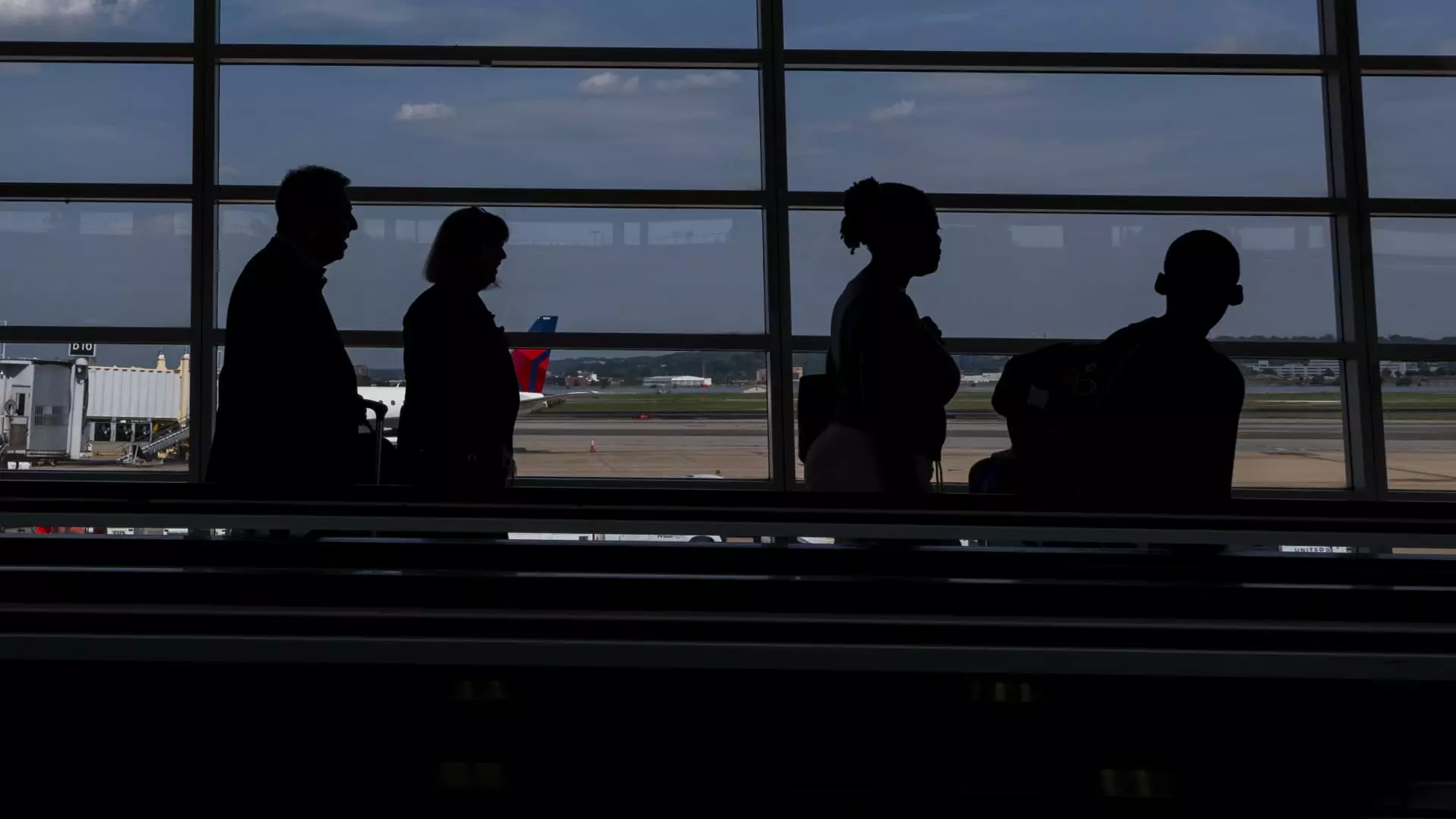As the United States navigates through a politically polarized landscape, the holiday travel season is poised to be significantly affected. This is particularly true in the lead-up to the 2024 elections, where sentiments around unrest and uncertainty have begun to dominate consumer behavior, compelling many to reconsider their travel plans. Families that have normally taken trips to sun-soaked locales or magical experiences at theme parks are now opting to stay close to home.
Take the case of Emily Reeve, a 32-year-old mother from Portland, Oregon. In previous years, her family vacationed during Thanksgiving in popular destinations like Hawaii or Disneyland. However, this year, with a young child in tow, Reeve’s concerns about potential unrest after the election have convinced her and her husband to stay home. They worry about being trapped in crowded airports or caught in volatile situations should the election result be contentious. Such sentiments reflect a broader trend among U.S. travelers who are increasingly cautious about where and when they choose to travel.
Industry experts have taken note of this rising anxiety. According to a poll conducted by the travel site Vacationer, nearly two-thirds of U.S. adults stated that they would avoid traveling in the country due to fears surrounding potential unrest, depending on the election outcomes. Interestingly, while some expressed concern primarily if Vice President Kamala Harris wins, others indicated that their travel plans would be unaltered regardless of the outcome. These statistics highlight how deeply ingrained the political climate has become in affecting day-to-day choices, including travel.
Airline executives are also acknowledging these shifts. Ed Bastian, the CEO of Delta Air Lines, remarked on consumers’ tendency to “take a little bit of a pause” around election times, suggesting that many prefer to remain home during uncertain periods. This aligns with past trends, as shown during both the 2016 and 2020 elections, where travel demand generally dipped as consumers hesitated to commit to plans amidst political volatility.
United Airlines has echoed Bastian’s observations, predicting that there will be fluctuations in bookings leading up to and even after the election, similar to previous years. The anxiety surrounding political outcomes coupled with economic uncertainty contributes heavily to this trend, resulting in decreased bookings both domestically and internationally.
Travel agencies are also witnessing changes in consumer behavior. Kelly Soderlund from Navan reported a 19% decline in domestic flight bookings for the election week compared to last year. However, post-election bookings have surged, raising questions about how future political landscapes can influence travel. The obligation businesses have for the safety of their employees has become paramount, and that awareness is trendily reshaping how they approach travel during politically charged periods.
The looming concern of a government shutdown and potential furloughs for federal employees is affecting family travel plans too. As noted by Kimberly Kracun, who operates a travel agency in Harpers Ferry, West Virginia, families are reconsidering vacations altogether. Anxiety surrounding financial stability post-election has led some families to delay their trips, showing how interconnected fears regarding governance and personal lives can severely impact travel behavior.
Furthermore, the political climate is straining family dynamics, predicting conflicts during family gatherings. A significant segment of younger travelers believes political discussions could lead to tension, with 38% of Gen Z and 29% of Millennials expressing concerns about potential disputes over familial get-togethers. This apprehension leads families to rethink their travel plans entirely; as one luxury travel agent noted, clients are refraining from taking trips together to avoid heightened political angst.
Among families, reactions to differing political views can exacerbate tensions, influencing decisions to maintain distance rather than gather to celebrate. This makes it apparent that the implications of political polarization extend far beyond the election itself, symbolizing a cultural shift in how relationships are maneuvered during public holidays.
The upcoming holiday season is navigating through a multifaceted web of political anxiety, economic uncertainty, and interpersonal relationships. Travelers are more cautious, with a notable shift in how families approach time away from home. As the elections approach and societal tensions linger, it becomes increasingly evident that the ramifications of these disturbances will likely haunt plans well past Election Day, leaving many to wonder if the holidays can ever return to being a peaceful time of gathering and celebration. With persistent uncertainty impacting decision-making, it is clear that travel this holiday season could be starkly different from years past.

Leave a Reply